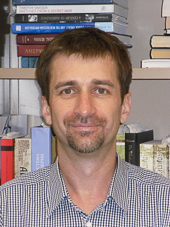Mikhail Dolbilov

Associate Professor, History
dolbilov@umd.edu
2121 Francis Scott Key Hall
Get Directions
Research Expertise
Europe
Modern History
Russia
A historian of imperial Russia, Mikhail Dolbilov focuses on the tsarist bureaucracy’s mentality and statecraft; interconnections between state reforms and symbolic representations of the Russian autocracy; modes of political loyalty and emotions related to them; and ethno-national and confessional politics on the empire’s peripheries in the age of rising nationalism. His major Russian-language book, Russian Country, Foreign Faith: Empire’s Ethno-confessional Policy in Lithuania and Belarus under Alexander II (2010) deals with the imperial dialectics of religious tolerance and discrimination against non-Orthodox faiths (as practiced towards Roman Catholics and Jews) during the era of the Great Reforms, detecting the impact that nationalist sensibilities had on earlier Enlightenment-born disciplining patterns of the state’s confessional engineering. With Aleksei Miller, Dolbilov has co-authored in Russian the volume The Western Borderlands of the Russian Empire (2006), and with Darius Staliunas, A Reverse Union: An Episode from the History of Relationship between Catholicism and Orthodoxy in the Russian Empire, 1840–1873 (2010). He is author of a range of articles, mostly in Russian, but also in English and French, that address complex issues of the Russo-Polish rivalry in a broader imperial context and argue that the rule over these borderlands was an essential part of how the empire functioned as a whole. In 2005–2011, Dolbilov served on the editorial board of the Historia Rossica series of the Moscow publisher Novoe literaturnoe obozrenie (New Literary Observer), committed to fostering provocative revisions of the field of Russian history and, particularly, translating into Russian recent innovative works by Western Russianists. He has taught at the European University in St. Petersburg (2006–2009) and has been a visiting scholar at the Harriman Institute of Columbia University and the Slavic Research Center of Hokkaido University (Japan).

